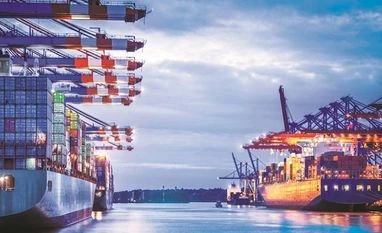Under the free trade agreement (FTA) between India and the United Arab Emirates (UAE), which will come into force on May 1, India has — for the first time —agreed to treat UAE firms on a par with domestic companies while bidding for tenders put out by certain central government departments and ministries for buying goods and services. Let’s find out what this shift in stance in India’s foreign trade policy means.
Why is the opening up of the public procurement market by India such a big deal?
India’s public procurement market is estimated to be between 20 and 22 per cent of the GDP, or about $500 billion annually. Central public sector enterprises (CPSEs) are a major contributor to public procurement of projects, goods and services. India’s trade partners are keen to have a share of this humongous pie. However, since India has not entered into any bilateral or multilateral agreement on government procurement, it is not binding upon it to allow foreign companies to bid for tenders put out by government departments or public sector undertakings (PSUs). Opening up this market will increase competition for Indian companies since foreign companies could outbid them in transparent bidding processes. This is also the reason why India was averse to opening this market to foreign players in the first place.
Has not India recently made local content mandatory for government procurements to promote Make in India?
Yes, by revising the Public Procurement (Preference to Make in India), Order 2017 on June 4, 2020, the industry department made it compulsory for departments and ministries to provide purchase preference to local suppliers with more than 50 per cent of local content. This was done to promote domestic manufacturing of goods and services with the aim to enhance income and employment.
The order also mandates that countries that do not allow Indian companies to participate in their government procurement for any item shall not be allowed to participate in government procurement in India for all items related to that nodal ministry or department — except for the list of items published by the ministry or department permitting their participation.
What has India committed to the UAE?
India has committed to give national treatment status to UAE companies, on a par with Indian companies, while bidding for central government tenders on a reciprocal basis. This means India cannot deny UAE companies from participating in India’s public procurement process on technical grounds or discriminate against their suppliers. However, each country reserves the right to extend a preferential procurement policy for its MSMEs in accordance with its laws and regulations. Public procurement of goods and services, including construction services above ~200 crore by 34 designated central government ministries (such as the ministries of new and renewable energy, and power), are now up for grabs.
However, procurements by all CPSEs including Railways, autonomous bodies and regulators are not covered under the deal. Procurements conducted under the Public Procurement (Preference to Make in India) Order 2017, those related to construction projects or any infrastructure project, or the health care sector, or of agricultural products for food aid programmes are also not covered under the deal.
What will be the consequences of opening up the government procurement market to the UAE?
On the face of it, since India has only yielded access to tenders by a limited number of central government departments and ministries, it won’t drive up any major competition for domestic companies. However, this would mean other trade partners under the ongoing trade negotiations — such as Australia, the UK, the EU and Canada — will also demand access to the public procurement market. This may increase competition for domestic companies and also put pressure on India to join the Agreement on Government Procurement (GPA), which is a limited agreement under the World Trade Organisation (WTO) that India has opposed so far.
Why has the government changed its stance now?
India’s long-standing position at the WTO has been that first pending developmental issues that concern the developing countries need to be resolved before entering into negotiations for the so-called 21st century issues such as e-commerce, investment, environment and government procurement. However, that position is slowly changing. Now, there is greater realisation within the government that India cannot be a fence-sitter while other countries make rules on issues that concern modern world trade. In December last year, Commerce Secretary B V R Subrahmanyam hinted at a gradual softening of stance on contentious trade issues by first negotiating such deals bilaterally with countries under the ongoing FTAs before making commitments at the WTO.
What are the arguments in favour of opening up the public procurement market?
Since India is opening up the public procurement market to the UAE on a reciprocal basis, Indian companies will also have the opportunity to bid for UAE government tenders. For India, this is expected to increase transparency, encourage healthy competition and reduce corruption.
Unlock 30+ premium stories daily hand-picked by our editors, across devices on browser and app.
Pick your 5 favourite companies, get a daily email with all news updates on them.
Full access to our intuitive epaper - clip, save, share articles from any device; newspaper archives from 2006.
Preferential invites to Business Standard events.
Curated newsletters on markets, personal finance, policy & politics, start-ups, technology, and more.
)